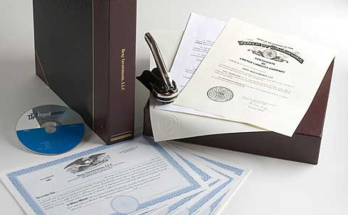Navigating the legal complexities of filing a mesothelioma lawsuit can feel overwhelming. For many, the diagnosis of mesothelioma is not just a medical battle but a financial and legal one as well. The stakes are high—this is about securing the financial compensation that you or your loved ones deserve, given the often-devastating nature of the disease. Understanding the process from start to finish is crucial to maximizing your chances of a successful claim.
What is a Mesothelioma Lawsuit?
A mesothelioma lawsuit is a legal action taken by individuals who have been diagnosed with mesothelioma, a rare and aggressive cancer primarily caused by exposure to asbestos. The purpose of this lawsuit is to seek compensation from companies that manufactured, sold, or used asbestos-containing products that led to exposure and subsequent illness. These lawsuits are often filed against companies that were aware of the dangers of asbestos but failed to warn or protect their workers and consumers.
Such lawsuits typically fall under personal injury claims or wrongful death claims, depending on whether the individual with mesothelioma is still alive. The compensation sought can cover medical expenses, lost wages, pain and suffering, and sometimes punitive damages.
Why File a Mesothelioma Lawsuit?
The primary reason for filing a mesothelioma lawsuit is to secure financial compensation that can help cover the enormous costs associated with treating the disease. Mesothelioma treatments are expensive, often involving surgery, chemotherapy, radiation therapy, and palliative care. Moreover, this form of cancer frequently forces patients to stop working, leading to a loss of income at a time when financial resources are needed most.
Furthermore, filing a lawsuit can also serve a broader purpose—holding negligent companies accountable for their actions. Many of these companies knew of the dangers posed by asbestos exposure but chose profits over the safety of their employees and customers. By filing a lawsuit, you can help ensure that such negligent practices are punished and deterred in the future.
Who Can File a Mesothelioma Lawsuit?
The eligibility to file a mesothelioma lawsuit generally extends to the individual diagnosed with the disease, their immediate family members, or their estate representative. Each state has specific laws governing who can file a lawsuit and the timeframe within which it must be filed, known as the statute of limitations.
It’s crucial to consult with a qualified mesothelioma attorney who can help determine your eligibility and guide you through the legal process. In cases where the person with mesothelioma has passed away, family members may file a wrongful death lawsuit to seek compensation for the loss of their loved one.
Steps to Filing a Mesothelioma Lawsuit
Choosing the Right Attorney
The first and most critical step is selecting an attorney who specializes in mesothelioma cases. A lawyer with specific experience in asbestos-related claims will have the expertise and resources necessary to build a strong case. Look for an attorney with a proven track record of securing significant settlements or verdicts for their clients.
Gathering Evidence
Evidence is the cornerstone of any successful lawsuit. In mesothelioma cases, this typically involves documenting your medical history, work history, and any known instances of asbestos exposure. Your attorney will help gather the necessary medical records, employment documents, and other critical evidence that links your illness to asbestos exposure.
Filing the Complaint
Once all the evidence is gathered, your attorney will file a legal complaint against the responsible parties. This document outlines your allegations and the damages you are seeking. The defendants will have an opportunity to respond, and the legal process will begin in earnest.
Discovery Phase
During discovery, both sides exchange information and gather additional evidence. This phase may involve depositions, where witnesses and experts are questioned under oath, and interrogatories, which are written questions that must be answered under oath.
Settlement Negotiations or Trial
Many mesothelioma lawsuits are settled out of court, with the defendants agreeing to pay a certain amount to avoid a lengthy trial. However, if a fair settlement cannot be reached, the case may go to trial. A jury will then decide the outcome based on the evidence presented.
Understanding Mesothelioma Settlements and Verdicts
Mesothelioma settlements and verdicts can vary widely depending on the specifics of the case. Settlements often range from hundreds of thousands to millions of dollars, providing financial security for victims and their families. In cases that go to trial, a jury may award even higher amounts if they believe the defendant’s actions were particularly egregious.
It’s important to note that each case is unique, and past results are not always indicative of future outcomes. However, an experienced mesothelioma attorney can give you a realistic idea of what to expect based on the details of your case.
Frequently Asked Questions
How long does it take to resolve a mesothelioma lawsuit?
The duration of a mesothelioma lawsuit can vary significantly. Some cases are resolved in a few months if a settlement is reached quickly, while others may take several years if they go to trial.
What if I don’t know where I was exposed to asbestos?
Your attorney will assist in investigating your work history, military service, or other potential sources of asbestos exposure. Many mesothelioma attorneys have resources and databases that can help identify where and when the exposure likely occurred.
Can family members file a lawsuit on behalf of a deceased loved one?
Yes, family members can file a wrongful death lawsuit if their loved one has passed away from mesothelioma. This allows them to seek compensation for their loss and hold the responsible parties accountable.
What are the costs associated with filing a mesothelioma lawsuit?
Most mesothelioma attorneys work on a contingency fee basis, meaning they only get paid if you win your case. This arrangement makes it possible for victims to pursue justice without upfront legal fees.
Is there a statute of limitations for filing a mesothelioma lawsuit?
Yes, the statute of limitations varies by state but typically ranges from 1 to 3 years from the date of diagnosis or death. It’s crucial to consult with an attorney as soon as possible to ensure your claim is filed within the required timeframe.
What compensation can I expect from a mesothelioma lawsuit?
Compensation can include medical expenses, lost wages, pain and suffering, and sometimes punitive damages. The amount varies depending on the specifics of your case, including the severity of your illness and the degree of negligence involved.
Filing a mesothelioma lawsuit is a critical step for victims seeking justice and financial compensation. The process can be complex and emotionally taxing, but with the right legal support, you can navigate it successfully. By understanding your rights and the steps involved, you can take the necessary actions to secure the compensation you deserve.




Great article! I really appreciate the clear and detailed insights you’ve provided on this topic. It’s always refreshing to read content that breaks things down so well, making it easy for readers to grasp even complex ideas. I also found the practical tips you’ve shared to be very helpful. Looking forward to more informative posts like this! Keep up the good work!
Элитный психолог: эксклюзивное сопровождение.
Конфиденциальность гарантирована.
Глубинная проработка проблем руководителей.
Запись: